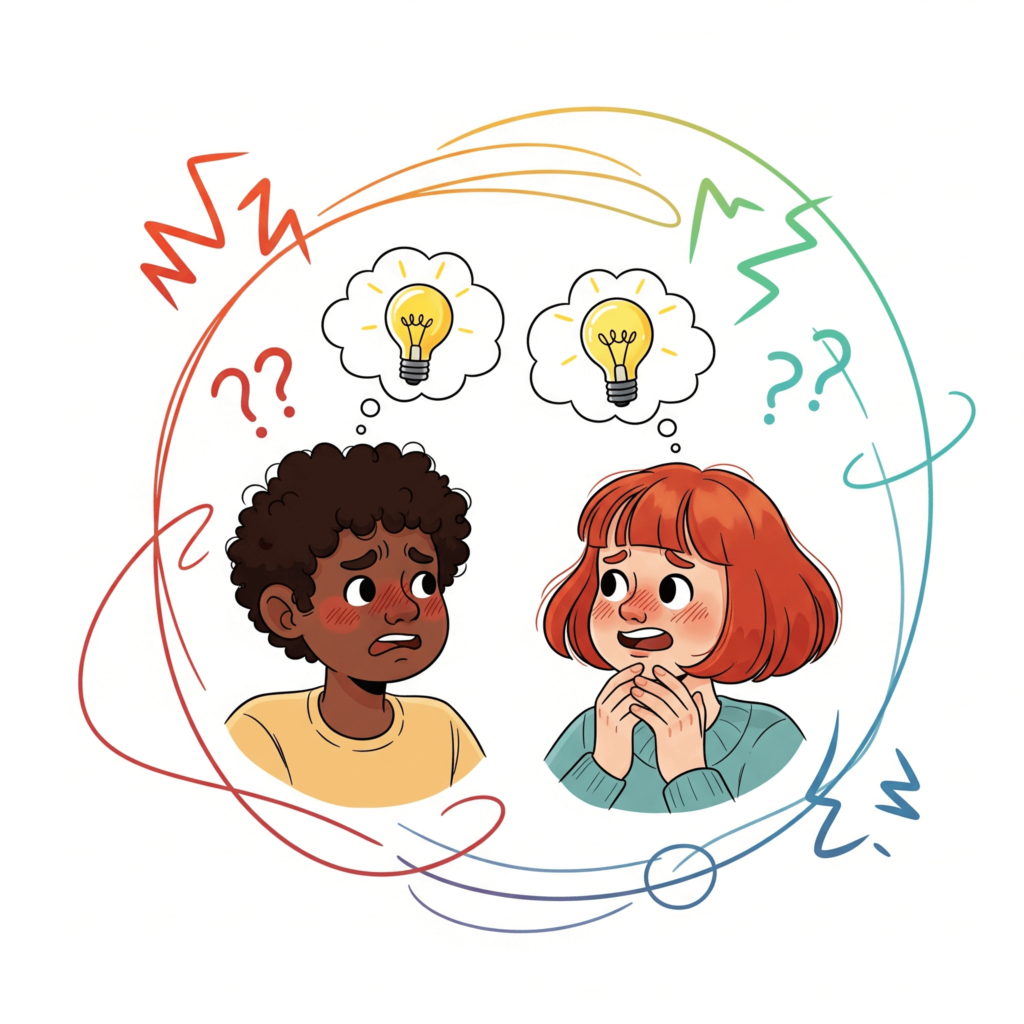Conflict resolution strategies are my only hope, yo. I’m typing this in my tiny Denver apartment, surrounded by empty Monster cans, a stack of textbooks I’m avoiding, and a pile of laundry I swore I’d fold last weekend. My cat’s chewing on a stray sock, and my phone’s buzzing with group chat drama I’m too frazzled to deal with. I’m 30, slogging through community college part-time while working retail, trying to resolve conflicts so I don’t tank my group projects or lose my cool. Here’s my sloppy, embarrassing take on conflict resolution strategies for students in 2025, with all my dumb fights and student conflict tips I’ve learned the hard way.
Why I’m Trash at Conflict Resolution Strategies
I’m legit awful at managing disagreements. I once got into a shouting match with a group project teammate over who was supposed to email the prof—turns out, it was me. Oops. But conflict resolution strategies are a must for students. I read on Psychology Today that unresolved drama can tank your grades and stress you out, so figuring this out is clutch. These student conflict tips are my attempt to keep my group projects from turning into a reality TV show.

My Top Conflict Resolution Strategies for Students
Here’s my list of conflict resolution strategies that stop me from imploding in group work. I’ve tried ‘em, botched ‘em, and learned a bit.
Crack a Joke: Lighten the mood with a dumb quip. I tried this and it worked.
Take a Deep Breath, Yo: Step back when things get spicy.
My Dumb Moment: I forgot to mute my mic and everyone heard me cuss out my cat. Mortifying.
Actually Listen: I learned this from a TED Talk.
Cringe Alert: I cut off a teammate mid-sentence and they ignored me for days. My bad.
Use “I” Statements: Say “I’m stressed” instead of “You’re screwing this up.” Keeps things less fight-y.
Find Some Common Ground: Agree on something small, like a meeting time. I did this and it saved a project.
Whoops: I agreed to a time I couldn’t make and had to beg for a reschedule.
Get a Neutral Person: Ask a TA or friend to mediate. My TA stopped our group from imploding.
Write Stuff Down: Put agreements in a Google Doc. Stops the “you said what?” nonsense.
My Fail: I forgot to share the Doc with my team and we lost our plan. Classic me.
Stay Calm, K?: Deep breaths keep you from yelling. I got this from Psychology Today (read here).
Own Your Screw-Ups: I admitted I forgot a slide and my team was way cooler about it.
Set Clear Roles: Decide who does what early. I didn’t, and we all did the same thing.
Embarrassing Bit: I emailed my prof “we’re screwed” by accident instead of my friend. Oof.
Check In Often: Quick Slack chats keep everyone on track (check Slack).
How I Keep Messing Up Conflict Resolution Strategies
Okay, real talk: resolving conflicts is not my forte. I once spent an hour arguing over who got to pick the presentation font instead of doing my part—peak me. Here’s what I’ve learned from my messes:
- Don’t Make It Personal: I got mad when a teammate dissed my slide. They were just trying to help.
- Talk Early: I ignored a group issue and it turned into a huge fight. Nip drama in the bud.
- Use Tools: Google Docs or Slack keep things clear. I learned this after losing a group plan.
- Chill Out: I yelled once and felt like a total jerk. Deep breaths are free and they work.
Harvard’s conflict resolution guide says active listening can cut drama by like 30%, which I’m trying without screwing it up again (read here).
Finding Your Own Conflict Resolution Strategies Groove
Picking student conflict tips is like picking a burrito topping—personal and a little stressful. Here’s my advice, straight from my taco-crumb-covered couch:
- Know What Sets You Off: I get cranky when I’m hungry, so I avoid group chats on an empty stomach. What’s your trigger?
- Start Small, Yo: Don’t try all these tips at once. I did and crashed hard. Pick one or two.
- Use Cool Tools: Slack’s free and keeps group chats organized. Trello’s dope too (check Trello).
- Check In Weekly: I review group progress every Sunday. Sounds nerdy, but it stops fights early.
Wrapping Up My Conflict Resolution Strategies Trainwreck
So, yeah, I’m still a disaster at conflict resolution strategies, sitting here in my Denver mess with my cat plotting my downfall. I’ve cried over group project fights, eaten too many tacos while dodging drama, and still forget to mute my mic half the time. But these manage disagreements tips have kept me from tanking my grades. Check out Psychology Today or Harvard’s guides for more student conflict tips if you’re curious.
Outbound Links (Suggestions):
- Pop Culture/Funny Source: A link to a short, humorous video or article that uses pop culture references (like a scene from a sitcom) to illustrate common conflict mistakes or resolutions in a relatable, lighthearted way.
- Relatable Personal Blog/Article: A link to a blog post from a university counseling center or a peer-led student wellness blog that offers relatable advice on managing roommate conflicts or group project challenges.









